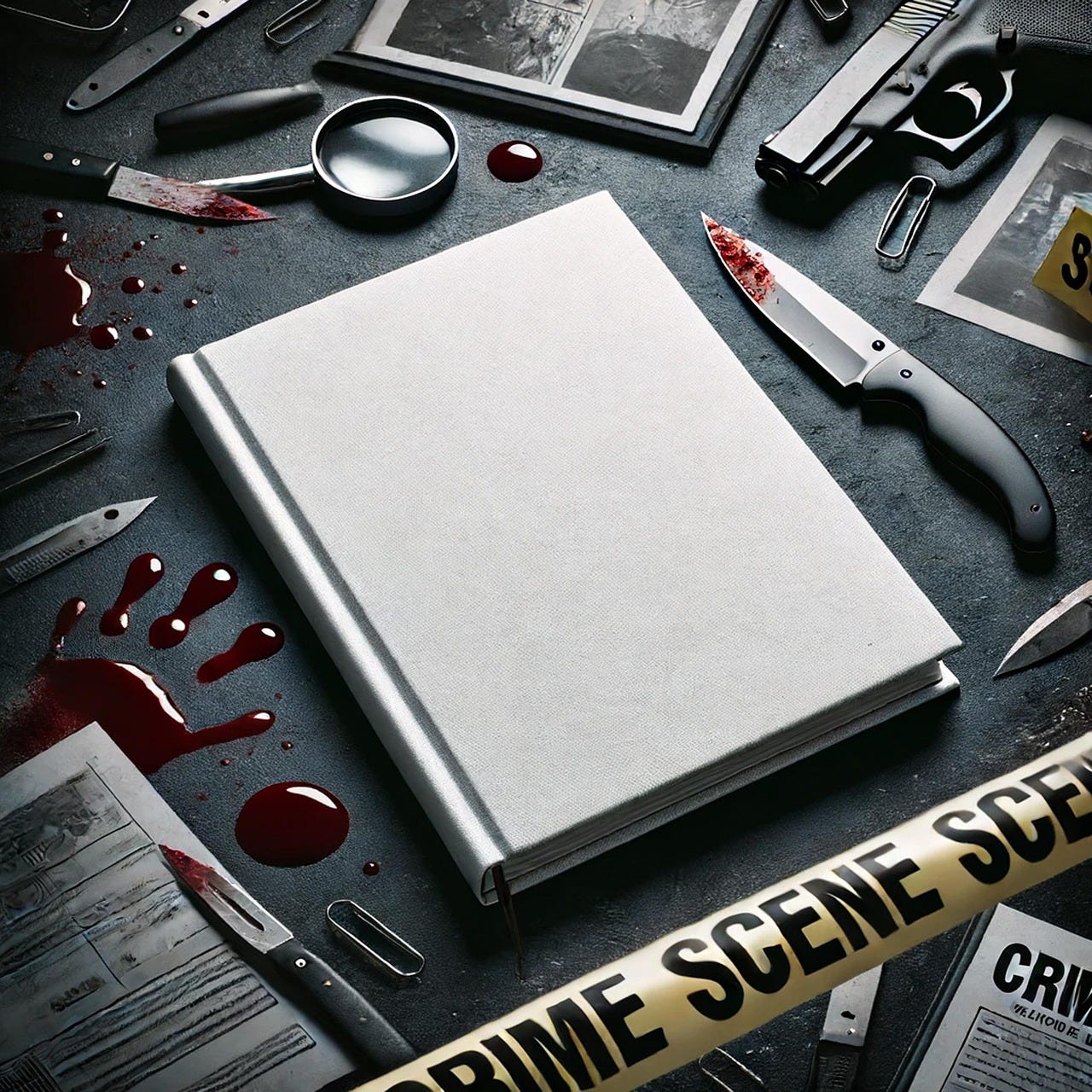
A few years ago I asked a guest writer to the writers’ group to which I belong why they chose crime as a genre. They said simply, ‘Because it pays best.’
I was probably more purist then, not to say naive. I was expecting them to say it ignited a unique passion in them.
Now I wouldn’t judge anyone for chasing the dollar, especially since margins are increasingly tight.
So while I was raised to believe ‘crime doesn’t pay’, it turns out it does in the world of commercial literature. That’s probably also true literally as well literarily, but the former is immoral and carries the risk of incarceration, so let’s move on.
Nothing to see.
Ways of apprehending genre
It’s possible to over-mystify genre; I’ve done that, as well as kicking against it and believing somehow I could defy it.
To the first, I’ve heard genre defined as the type of vessel a story can be poured into.
That’s fine as far as it goes, but that left me still struggling to imagine what it meant in practice for me as a writer.
A more meaningful and relatable parallel I found was with music. If someone tells you they’ve written a song, a natural follow-up question is, ‘What or who does it sound like?’
That’s code for ‘what genre shall I place it in?’
Genre is ultimately a kind of classification, and every example brings with it certain expectations; if you tell me you’ve written a rock ’n’ roll song, it’s reasonable to expect some kind of vocal, drums, bass and electric guitar.
If you tell me you’ve written a love story, if it’s a conventional one I doubt I’d be too far out to think that boy meets girl and then by the end the couple get together.
Romance and fantasy are two very popular genres. And like a satisfying love story, the two have become one to spawn the subgenre ‘romantasy’.
Does the exception prove the rule?
Rules are made to be broken, though – creatively, at least.
That rock’n’roll song might be ‘unplugged’. Until it gets past demo stage, anyway.
And that love story might feature gay protagonists. Or it might be a darker reading of the genre which ends in tragedy.
There was at least one couple in fair Verona which didn’t survive the ending.
Individual books set up their own internal expectations, too.
Waving, Drowning – there, I’ve said it – starts with a rehearsal for a millennial TV show, so I don’t think it’s much of a spoiler to say I felt the obligation with my first novel to deliver you, the reader, some kind of TV show at the end.
I felt I had to go with the principle of ‘Chekov’s gun’: the idea that a firearm brought on stage in act one – other artistic forms are available – has gone off by act three.
But that doesn’t mean everything has to unfold in a linear, predictable fashion. In fact, it’s not much of a story if it does.
So the gun might not be fired by the one person you most expect it to. And who says it has to be aimed at anyone? Or be a real, lethal gun?
Other lucrative genres
As well as crime, romance and fantasy are two very popular genres. And like a satisfying love story, the two have become one to spawn the subgenre ‘romantasy’. Such fiction provides romance in a fantastical setting.
Whereas traditionally fantasy was predominantly written by men, romantasy seems – anecdotally, at least – to be giving more of a platform to female writers.
Another bankable genre is self-help. I seem to remember a Guardian article reporting that 80% of the category comprises repeat business – ie the overwhelming majority of customers have bought from that genre before – it’s questionable how effective self-help books are.
I think that’s unnecessarily cynical; people might be registering a gently incremental improvement in quality of life from one book to the next, or they’re looking to find a book they can ‘click’ with – and that might take a few goes.
I doubt there’s a vast number of people putting money into a form from which they’re getting no discernible benefit.
Classic literature and poetry are also steady sellers.
Genre bending and blending
One way to disrupt the reader’s expectations is by blending genres.
One category I could put Waving, Drowning in is ‘tragicomic’. I guess technically that’s of itself already a blend. As a sagacious actor friend said to me recently, ‘The trick is to find the comedy in tragedy and the tragedy in comedy’.
When I was sending an excerpt of my debut novel to literary agents I was disheartened to read that one of them expressly requested writers didn’t use ‘meets’-type illustrations as in, for example, ‘my book is Great Expectations meets Wind in the Willows’.
Agents are entitled to make whatever stipulations they want, although I found that one a bit limiting and arbitrary.
The same agent is bound to want to know which genre you’re writing in, and so to say ‘my book is a bit like Murder on the Orient Express meets Fifty Shades of Grey’ is only another way of saying ‘I’m blending crime with erotic romance’.
Bang go my future career opportunities with that agent.
See – Chekov’s gun did go off in the end.




In the film world, Parasite has to be one of the most genre-blending (or is it bending?) examples out there - comedy/horror/disaster/coming-of-age/familial.....all depending on where one draws each genre boundary. Based on the varying responses from friends it seems to have had a Marmite effect.